
Director

Screenplay
Named after two units in the Esquirol Hospital, this documentary focuses on individual interviews and meetings between caregivers and patients to spotlight the different forms of mental health care used and give viewers a glimpse into the unique worlds of those giving and receiving treatment.

Director
Named after two units in the Esquirol Hospital, this documentary focuses on individual interviews and meetings between caregivers and patients to spotlight the different forms of mental health care used and give viewers a glimpse into the unique worlds of those giving and receiving treatment.
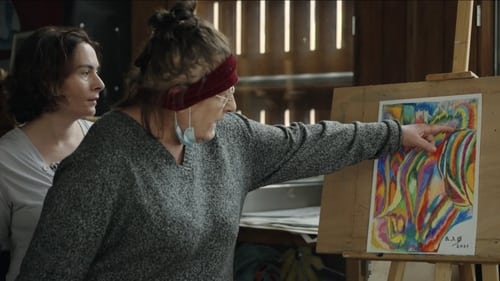
Editor
The Adamant is a unique day-care centre. A floating structure located on the Seine in the heart of Paris, it welcomes adults suffering from mental disorders, offering the kind of care that grounds them in time and space and helps them to recover or keep up their spirits. The team running it tries to resist the deterioration and dehumanisation of psychiatry as best as they can.

Director of Photography
The Adamant is a unique day-care centre. A floating structure located on the Seine in the heart of Paris, it welcomes adults suffering from mental disorders, offering the kind of care that grounds them in time and space and helps them to recover or keep up their spirits. The team running it tries to resist the deterioration and dehumanisation of psychiatry as best as they can.

Writer
The Adamant is a unique day-care centre. A floating structure located on the Seine in the heart of Paris, it welcomes adults suffering from mental disorders, offering the kind of care that grounds them in time and space and helps them to recover or keep up their spirits. The team running it tries to resist the deterioration and dehumanisation of psychiatry as best as they can.

Director
The Adamant is a unique day-care centre. A floating structure located on the Seine in the heart of Paris, it welcomes adults suffering from mental disorders, offering the kind of care that grounds them in time and space and helps them to recover or keep up their spirits. The team running it tries to resist the deterioration and dehumanisation of psychiatry as best as they can.
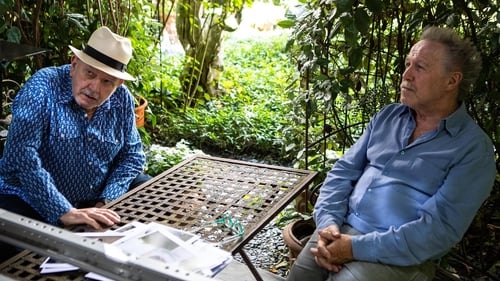
This is a peaceful conversation between two filmmakers, Nicolas Philibert and Jean-Louis Comolli. A conversation, or the pleasure of spending time together. Nicolas Philibert describes with great precision his way of working and invites us to examine the ethical dimension of his process.

Writer
Every year, thousands of students – mostly female – embark upon courses that will lead them to become nurses. This film follows the ups and downs of an apprenticeship that will confront them, often at a young age, with human fragility, suffering, illness, the flaws in souls and bodies.

Editor
Every year, thousands of students – mostly female – embark upon courses that will lead them to become nurses. This film follows the ups and downs of an apprenticeship that will confront them, often at a young age, with human fragility, suffering, illness, the flaws in souls and bodies.

Director of Photography
Every year, thousands of students – mostly female – embark upon courses that will lead them to become nurses. This film follows the ups and downs of an apprenticeship that will confront them, often at a young age, with human fragility, suffering, illness, the flaws in souls and bodies.

Director
Every year, thousands of students – mostly female – embark upon courses that will lead them to become nurses. This film follows the ups and downs of an apprenticeship that will confront them, often at a young age, with human fragility, suffering, illness, the flaws in souls and bodies.

Director
Interview with Linda De Zitter, clinical psychologist, psychoanalyst. Complementary bonus film to the new DVD edition of "La Moindre des Choses" (Every Little Thing), April 2019.

Co-Director
Staying up day and night and occupying a hairdressing salon at 57 Bd de Strasbourg in Paris, eighteen undocumented workers are on strike since May 22, 2014, protesting against human trafficking and the local mafia.

Editor
Making a film about a radio station doesn’t sound like the most visually compelling of projects. How many takes do you need before the acoustic transition from the opening to the closing of a door is perfect or the reader's voice correctly modulated? Nicolas Philibert has accepted the challenge to portray that which cannot be seen. Shouldering his camera, he spent half a year wandering the endless corridors of Radio France’s ‘round house’ on the banks of the Seine where he filmed people who dedicate themselves utterly and meticulously to their work.

Writer
Making a film about a radio station doesn’t sound like the most visually compelling of projects. How many takes do you need before the acoustic transition from the opening to the closing of a door is perfect or the reader's voice correctly modulated? Nicolas Philibert has accepted the challenge to portray that which cannot be seen. Shouldering his camera, he spent half a year wandering the endless corridors of Radio France’s ‘round house’ on the banks of the Seine where he filmed people who dedicate themselves utterly and meticulously to their work.

Director
Making a film about a radio station doesn’t sound like the most visually compelling of projects. How many takes do you need before the acoustic transition from the opening to the closing of a door is perfect or the reader's voice correctly modulated? Nicolas Philibert has accepted the challenge to portray that which cannot be seen. Shouldering his camera, he spent half a year wandering the endless corridors of Radio France’s ‘round house’ on the banks of the Seine where he filmed people who dedicate themselves utterly and meticulously to their work.

Director of Photography
Interview with French Radio France forecaster, meteorologist and journalist Joël Collado. Complementary bonus film to the DVD edition of "La Maison de la Radio" (November 2013).

Director of Photography
Excerpts from a reading of texts on the heroes of the Tour de France by Jacques Bonnaffé, accompanied by Louis Sclavis on clarinet and sax. Complementary bonus film to the DVD edition of "La Maison de la Radio" (November 2013).

Director
Excerpts from a reading of texts on the heroes of the Tour de France by Jacques Bonnaffé, accompanied by Louis Sclavis on clarinet and sax. Complementary bonus film to the DVD edition of "La Maison de la Radio" (November 2013).

Director
Interview with French Radio France forecaster, meteorologist and journalist Joël Collado. Complementary bonus film to the DVD edition of "La Maison de la Radio" (November 2013).

Editor
A TV-special offering more than three and a half hours of the latest standout production in the diverse and eclectic world of short films and documentaries.

Director
A TV-special offering more than three and a half hours of the latest standout production in the diverse and eclectic world of short films and documentaries.

Editor
Nénette, an orangutan, is the star of the Parisian zoo where she has lived most of her long life. She is a mother of four and has survived three mates, and she bonds only with a few select keepers. The camera rests throughout on Nénette and the other apes in everyday situations. We only see the visitors as occasional reflections in the glass, but we hear their recorded comments and conversations alongside interviews with the zoo keepers.

Director of Photography
Nénette, an orangutan, is the star of the Parisian zoo where she has lived most of her long life. She is a mother of four and has survived three mates, and she bonds only with a few select keepers. The camera rests throughout on Nénette and the other apes in everyday situations. We only see the visitors as occasional reflections in the glass, but we hear their recorded comments and conversations alongside interviews with the zoo keepers.

Writer
Nénette, an orangutan, is the star of the Parisian zoo where she has lived most of her long life. She is a mother of four and has survived three mates, and she bonds only with a few select keepers. The camera rests throughout on Nénette and the other apes in everyday situations. We only see the visitors as occasional reflections in the glass, but we hear their recorded comments and conversations alongside interviews with the zoo keepers.

Director
Nénette, an orangutan, is the star of the Parisian zoo where she has lived most of her long life. She is a mother of four and has survived three mates, and she bonds only with a few select keepers. The camera rests throughout on Nénette and the other apes in everyday situations. We only see the visitors as occasional reflections in the glass, but we hear their recorded comments and conversations alongside interviews with the zoo keepers.

Editor
When Nénette watches "Nénette". Eight months after the theatrical release of "Nénette", the director, who had promised to show the film to his heroine, executes his project. For Nénette and her son Tübo, this is their first film screening.

Editor
A visitors’ day in a Parisian zoo is about to end. The last guests, tired with attractions, are going back home. What happens to the zoo residents, which are not closely looked at, after the gates are closed? Tired animals listen to one another’s voices. Slowly, their calls fall silent deeper into the night, which drowns each cage in darkness. Before it becomes completely dark, the birds once again announce from afar the end of a long day.

Director of Photography
When Nénette watches "Nénette". Eight months after the theatrical release of "Nénette", the director, who had promised to show the film to his heroine, executes his project. For Nénette and her son Tübo, this is their first film screening.

Director of Photography
A visitors’ day in a Parisian zoo is about to end. The last guests, tired with attractions, are going back home. What happens to the zoo residents, which are not closely looked at, after the gates are closed? Tired animals listen to one another’s voices. Slowly, their calls fall silent deeper into the night, which drowns each cage in darkness. Before it becomes completely dark, the birds once again announce from afar the end of a long day.

Writer
A visitors’ day in a Parisian zoo is about to end. The last guests, tired with attractions, are going back home. What happens to the zoo residents, which are not closely looked at, after the gates are closed? Tired animals listen to one another’s voices. Slowly, their calls fall silent deeper into the night, which drowns each cage in darkness. Before it becomes completely dark, the birds once again announce from afar the end of a long day.

Director
When Nénette watches "Nénette". Eight months after the theatrical release of "Nénette", the director, who had promised to show the film to his heroine, executes his project. For Nénette and her son Tübo, this is their first film screening.

Director
A visitors’ day in a Parisian zoo is about to end. The last guests, tired with attractions, are going back home. What happens to the zoo residents, which are not closely looked at, after the gates are closed? Tired animals listen to one another’s voices. Slowly, their calls fall silent deeper into the night, which drowns each cage in darkness. Before it becomes completely dark, the birds once again announce from afar the end of a long day.

Editor

Director of Photography

Writer

Director
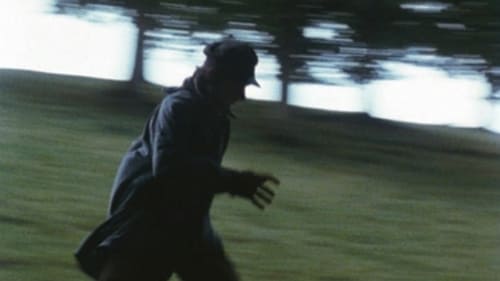
Himself
A filmmaker returns to Normandy thirty years after a working on a movie based on a local homicide and tries to find the actors who worked on the project.

Editor
A filmmaker returns to Normandy thirty years after a working on a movie based on a local homicide and tries to find the actors who worked on the project.

Director
A filmmaker returns to Normandy thirty years after a working on a movie based on a local homicide and tries to find the actors who worked on the project.

From January to November 2004, as a kind of carnet de voyage alongside our other activities, we asked one and the same question of various people we met on our journeys, including friends: "Do you remember a moment in your life when something really changed?" We requested them to tell us a story to illustrate their reply, and we filmed them.

Director of Photography
Interview with Jean Oury, director of the La Borde psychiatric clinic. Complementary bonus film to the DVD edition of "La Moindre des Choses" (Every Little Thing), autumn 2002.

Director
Interview with Jean Oury, director of the La Borde psychiatric clinic. Complementary bonus film to the DVD edition of "La Moindre des Choses" (Every Little Thing), autumn 2002.
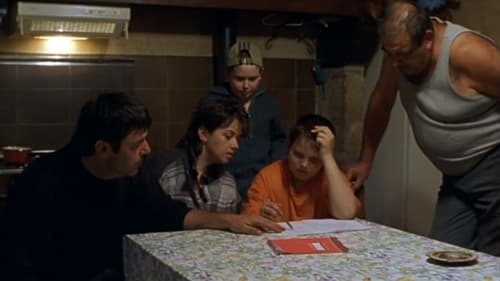
Camera Operator
The documentary's title translates as "to be and to have", the two auxiliary verbs in the French language. It is about a primary school in the commune of Saint-Étienne-sur-Usson, Puy-de-Dôme, France, the population of which is just over 200. The school has one small class of mixed ages (from four to twelve years), with a dedicated teacher, Georges Lopez, who shows patience and respect for the children as we follow their story through a single school year.

Writer
The documentary's title translates as "to be and to have", the two auxiliary verbs in the French language. It is about a primary school in the commune of Saint-Étienne-sur-Usson, Puy-de-Dôme, France, the population of which is just over 200. The school has one small class of mixed ages (from four to twelve years), with a dedicated teacher, Georges Lopez, who shows patience and respect for the children as we follow their story through a single school year.

Editor
The documentary's title translates as "to be and to have", the two auxiliary verbs in the French language. It is about a primary school in the commune of Saint-Étienne-sur-Usson, Puy-de-Dôme, France, the population of which is just over 200. The school has one small class of mixed ages (from four to twelve years), with a dedicated teacher, Georges Lopez, who shows patience and respect for the children as we follow their story through a single school year.

Director
The documentary's title translates as "to be and to have", the two auxiliary verbs in the French language. It is about a primary school in the commune of Saint-Étienne-sur-Usson, Puy-de-Dôme, France, the population of which is just over 200. The school has one small class of mixed ages (from four to twelve years), with a dedicated teacher, Georges Lopez, who shows patience and respect for the children as we follow their story through a single school year.

Director of Photography
Interview with Jack Thiney, taxidermist at the National Museum of Natural History, in Paris. Complementary bonus film to the DVD edition of "Animals" (autumn 2002).

Writer
Interview with Jack Thiney, taxidermist at the National Museum of Natural History, in Paris. Complementary bonus film to the DVD edition of "Animals" (autumn 2002).

Director
Interview with Emmanuelle Laborit, actress and director of the company l'International Visual Theatre (IVT). Complementary bonus film to the DVD edition of "Le Pays des Sourds/In the Land of the Deaf" (autumn 2002).

Director
Interview with Jack Thiney, taxidermist at the National Museum of Natural History, in Paris. Complementary bonus film to the DVD edition of "Animals" (autumn 2002).

Writer
We see how a show, created, improvised and acted by the collaboration of students at Strasbourg's National Theater, is developed from start to finish, in this documentary.

Director
We see how a show, created, improvised and acted by the collaboration of students at Strasbourg's National Theater, is developed from start to finish, in this documentary.

Co-Director
In support of undocumented immigrants in France, a collective film jointly signed by 200 French filmmakers, producers, distributors, and cinema owners. Produced by Le Collectif des Cinéastes Pour les Sans-papiers, with Madjiguène Cissé.

Editor
Documentary. The tranquil woods of the Loire Valley embrace the La Borde psychiatric clinic, an asylum in the truest sense of the word, where patients find sanctuary and repose. Patients and staff work together in rehearsals and preparations for their annual summer play. This year, they perform the modernist, absurdist classic, "Operette," by Witold Gombrowicz, whose dialogue is more nonsensical than that of the patients themselves.

Director of Photography
Documentary. The tranquil woods of the Loire Valley embrace the La Borde psychiatric clinic, an asylum in the truest sense of the word, where patients find sanctuary and repose. Patients and staff work together in rehearsals and preparations for their annual summer play. This year, they perform the modernist, absurdist classic, "Operette," by Witold Gombrowicz, whose dialogue is more nonsensical than that of the patients themselves.

Writer
Documentary. The tranquil woods of the Loire Valley embrace the La Borde psychiatric clinic, an asylum in the truest sense of the word, where patients find sanctuary and repose. Patients and staff work together in rehearsals and preparations for their annual summer play. This year, they perform the modernist, absurdist classic, "Operette," by Witold Gombrowicz, whose dialogue is more nonsensical than that of the patients themselves.

Director
Documentary. The tranquil woods of the Loire Valley embrace the La Borde psychiatric clinic, an asylum in the truest sense of the word, where patients find sanctuary and repose. Patients and staff work together in rehearsals and preparations for their annual summer play. This year, they perform the modernist, absurdist classic, "Operette," by Witold Gombrowicz, whose dialogue is more nonsensical than that of the patients themselves.

Director
On the occasion of Catherine's 50th birthday, her parents, relatives, and friends step in front of the camera to wish her a happy birthday.

Writer
This fascinating French documentary chronicles the reopening of the Zoology Hall in the Paris Museum of Natural History in 1993. It had been closed for almost thirty years and it took three years of hard work to restore it and the stuffed creatures within.

Director
This fascinating French documentary chronicles the reopening of the Zoology Hall in the Paris Museum of Natural History in 1993. It had been closed for almost thirty years and it took three years of hard work to restore it and the stuffed creatures within.

Writer
In a workshop in the National Natural History Museum (Paris), a taxidermist undertakes the task of stuffing a badger. This film was earmarked for the renovated Grande Galerie in the National Natural History Museum.

Writer
This film was made for the Grande Galerie in the National Natural History Museum in Paris, retracing the major stages of its recent restoration.

Writer
Four hundred animal portraits. This film was made for the renovated Grande Galerie in the National Natural History Museum in Paris.

Director
Four hundred animal portraits. This film was made for the renovated Grande Galerie in the National Natural History Museum in Paris.

Director
This film was made for the Grande Galerie in the National Natural History Museum in Paris, retracing the major stages of its recent restoration.

Director
In a workshop in the National Natural History Museum (Paris), a taxidermist undertakes the task of stuffing a badger. This film was earmarked for the renovated Grande Galerie in the National Natural History Museum.
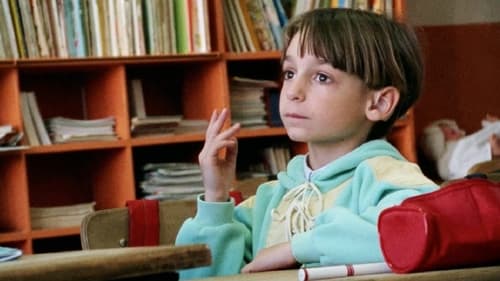
Writer
The films and methods of Nicolas Philibert, maker of Etre et avoir, have shown him to be one of contemporary cinema’s most acclaimed documentarists. In The Land of the Deaf is an elegantly spare and thoughtful portrait of the rich, diverse, but often isolated culture of the deaf community. The film has tremendous power and value: it educates and transports us to another way of occupying this world, and it does so in a pleasurable, unrushed and intelligent fashion.

Director
The films and methods of Nicolas Philibert, maker of Etre et avoir, have shown him to be one of contemporary cinema’s most acclaimed documentarists. In The Land of the Deaf is an elegantly spare and thoughtful portrait of the rich, diverse, but often isolated culture of the deaf community. The film has tremendous power and value: it educates and transports us to another way of occupying this world, and it does so in a pleasurable, unrushed and intelligent fashion.

Writer
A new shorter and uncensored TV version of Patrons - Télévision (1979). The dates "1978 / 1991" are used in reference to the "missing years", the amount of time during which the film was not authorized to be shown on TV in France.

Director
A new shorter and uncensored TV version of Patrons - Télévision (1979). The dates "1978 / 1991" are used in reference to the "missing years", the amount of time during which the film was not authorized to be shown on TV in France.

Editor
A voyage into the museum's reserves, and part of the extra work involved to mount the expositions after the renovation of the Louvre in the 1980s, when the glass pyramid was added to the classic buildings. From the preservation rooms through the frame and painting retouches by experts, to the personnel instruction on how to be efficient in protecting the collections, and look nice to the visitors. (Written on IMDB by Artemis-9)

Writer
A voyage into the museum's reserves, and part of the extra work involved to mount the expositions after the renovation of the Louvre in the 1980s, when the glass pyramid was added to the classic buildings. From the preservation rooms through the frame and painting retouches by experts, to the personnel instruction on how to be efficient in protecting the collections, and look nice to the visitors. (Written on IMDB by Artemis-9)

Director
A voyage into the museum's reserves, and part of the extra work involved to mount the expositions after the renovation of the Louvre in the 1980s, when the glass pyramid was added to the classic buildings. From the preservation rooms through the frame and painting retouches by experts, to the personnel instruction on how to be efficient in protecting the collections, and look nice to the visitors. (Written on IMDB by Artemis-9)

Director
At the age of 77, Roger Lapébie is the oldest winner of the Tour de France still alive. Half a century has passed since his legendary victory in 1937. Yet Roger still covers more than 200 miles each week by bicycle on the highways and byways of the Landes. The portrait of a great, good-natured cyclist, who declares: 'I love my bike more than I love myself.'

Director
In July 1956, together with the mountaineer Gaston Rébuffat, the actor and cellist Maurice Baquet made the first ascent of the south face of the Aiguille du Midi (3,842 m/12,606 ft), a magnificent wall of red granite soaring up like a rampart above the Vallée Blanche (the White Valley) in the Mont-Blanc Massif. Thirty-two years later, as if to pay tribute to the memory of his friend Gaston, now deceased, Maurice Baquet once again climbed this mighty crag, suspended between sky and earth, behind Christophe Profit.

Director
The most legendary 'sequence' ever achieved by a mountaineer: on 12 and 13 March 1987, in 40 hours, 26-year-old Christophe Profit managed to climb three of the highest north faces in the Alps, in winter: Grandes Jorasses, Eiger, and Matterhorn. But over and above this 'coverage' of the feat, we discover the wings, the story behind the project, the peaks and troughs of the preparations for it, and the personality of the man behind the climbs, a dancer on sheer rock faces, focusing all the energy and reflexes of life itself in his fingertips.

Director
A film arising from "Trilogie Pour Un Homme Seul" (Trilogy for One Man), about the medical and nutritional monitoring of French mountaineer Christophe Profit during his climbing 'trilogy' and the intensive training period leading up to it.

Director
Clinging to the middle of the mountain like so many spiders, a dozen filmmakers and mountain guides busy themselves above the abyss to film Christophe Profit's ascent of Le Dru. Little by little, the director finds himself dreaming of the tranquil seaside holidays he might have had, like so many other nice people.

Director
While shooting Gerard Mordillat's film, "Billy ze Kick", Christophe Profit, one of the best climbers in the world, was asked to stand in for an actor. He will, without ropes or belay, climb the smooth side of a 60 meter building.

Director
It is 1 p.m. on June 30, 1982, when Christophe Profit, 24, shows up at the foot of Les Drus with his pof bag, his climbing shoes and nothing else. He will try the west face of Les Drus in "solo", in the Mont Blanc massif by "Directe Américaine", 1100 meters of vertical and smooth rock. Christophe will achieve the feat of climbing the wall in free solo, without using a rope or any belaying technique. At 4:10 p.m., barely more than three hours after the start of his ascent, the new climbing star can embrace the Virgin of the Drus at the same time as the career of a high-level mountaineer. Three years later, on July 25, 1985, he climbed the north faces of the Matterhorn, the Eiger and the Jorasses in the same day. Awarded at many mountain film festivals, this great documentary is a magnificent testimony to one man's passion for climbing, the mountains and adventure.

Writer
Jacques Lemonnier of IBM France, Francois Dalle of L'Oreal and other ultrapowerful French moguls are surprisingly candid -- and cold-blooded -- as they discuss their attitudes about business in this startling 1978 documentary. After sounding off about unions, strikes, hierarchy and management, the subjects realized how callous they sounded and managed to convince the French government to suppress the film.

Director
Jacques Lemonnier of IBM France, Francois Dalle of L'Oreal and other ultrapowerful French moguls are surprisingly candid -- and cold-blooded -- as they discuss their attitudes about business in this startling 1978 documentary. After sounding off about unions, strikes, hierarchy and management, the subjects realized how callous they sounded and managed to convince the French government to suppress the film.
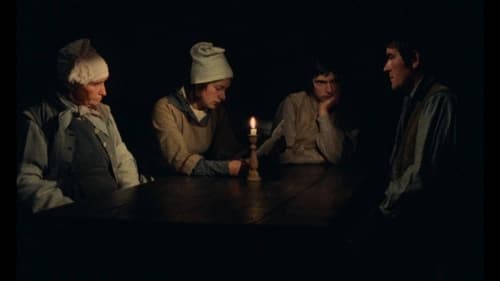
Assistant Director
Based on documents compiled by leading French philosopher Michel Foucault, this unique and original film charts the gruesome events which took place in a Normandy village in 1835, when a young man, Pierre Rivière, murdered his mother, sister and brother before fleeing to the countryside. With a cast made up of real-life villagers from the area where the events took place, the detailed re-enactments and careful attention to the gestures of their ancestors serve to create an intense and sometimes disturbing atmosphere of hyper-realism. Details of the crime and of the trial that followed are told from varied perspectives, including the written confession of Pierre himself, and form a rich and complex narrative that interrogates the concepts of “truth” and “history”.















